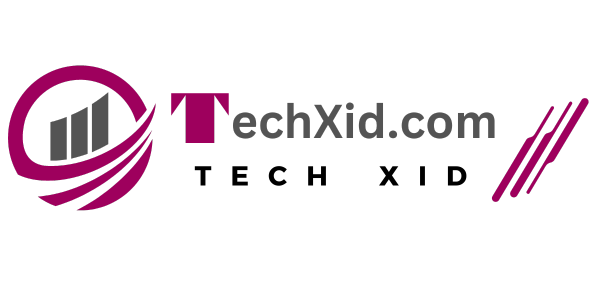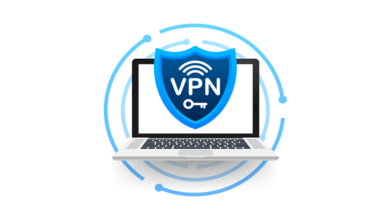4 Suggestions for time Management and Productivity Monitoring for Busy PR Executives

As a public relations specialist, you operate as a chaos navigator, managing a maelstrom of customers, campaigns, and consistent communication. Time is a valuable resource in this world, and demands may often feel quite overwhelming.
Your daily to-do list is dynamic, full of shoppers competing for your attention, pressing deadlines, and unexpected emergencies to deal with. You need strategies to maximize your productivity and understand time management if you’re going to make any sense of it and try your hardest. Continue reading to learn four key concepts that will help you gain better time management skills, increase productivity, and restore work-life balance.
1. Effectively prioritize your tasks
A higher level of productivity and priority are mutually exclusive. Your productivity depends on the priority, urgency, and significance of the tasks you choose to complete first.
Here are a few quick suggestions to improve your PR professional prioritization:
Pressing versus necessary: By looking at it, you might be able to manage your time effectively. Concentrate your quick thinking on tasks that may be both urgent and essential.
Blocking time: Set up specific time slots for different kinds of tasks. For example, set aside the morning for mentally taxing, high-priority work and the afternoon for conferences and emails. Adhere strictly to your timetable.
Daily task lists: Make a daily to-do list, but make sure to keep it brief and focused on your top objectives. Usually, three to five main responsibilities are doable.
Make use of your expertise: If you haven’t already, consider adopting task management and observation applications like Trello or Asana for process management.
Maintain a certain degree of adaptability at the end. Despite all, public relations is dynamic, and needs can change rapidly; thus, remain flexible and adjust priorities as needed.
2. Make Use of Time Management Tools and Techniques
Finding out how you’re spending your working hours might help you optimize your schedule for maximum productivity when you don’t want to track every minute of your workday. And for this, choose from among the many time management tools currently available, in addition to the duty management apps discussed above:
Software for tracking time: You may track how you spend your working hours with tools like Controlio, Toggl or Clockify, which provide insights into where your time is being spent effectively and where it is being squandered. If you oversee a team of public relations specialists or other associates, using employee monitoring software program to track productivity, daily activities, and timesheets can help keep everyone in the loop.
Applications for calendars: Plan tasks, meetings, and reminders with digital calendars such as Microsoft Outlook or Google Calendar. Sync them for easy accessibility across all units.
Batching: Assign tasks to groups and complete them in designated time slots. For instance, respond to all of your emails at specific times of the day rather than intermittently throughout the day. You may learn time management skills, stay organized, cut down on distractions, and see a boost in productivity by combining effective tactics with the right tools.
3. Take Hold of the Delegation’s Artwork
Select the appropriate group members: Choose coworkers who possess the skills and competencies necessary to handle the assigned tasks. Think about their availability, workload, and strengths.
Speak clearly: Provide instructions that are very explicit when assigning. Give a clear explanation of the task’s objectives, standards, timeframes, and any special instructions. Promote open dialogue and ask questions.
Belief: The foundation of delegating is belief among your group. Give your group the freedom to own the responsibilities. Micromanaging squanders your time and undermines the purpose of delegation.
Establish checkpoints: Establish benchmarks or checkpoints to monitor progress over time. This guarantees that the task is being observed and allows for timely adjustments if necessary.
Help: Offer guidance and assistance as needed, but avoid taking on the role of manager. Your role is to assist, not to carry out their tasks.
Analyze and recommendations: After the task is completed, evaluate the results and offer helpful recommendations. Reward them with praise and acknowledge their efforts.
Learn from the experts: The capacity for delegation develops through observation. Consider the experience of each delegated task to improve your approach and identify opportunities for improvement.
Assign tasks wisely: Think on the long-term development of your group. Assign tasks that give your group members opportunities to learn and that will help them acquire new skills.
4. Establish a Disciplined Daily Schedule
In public relations, unpredictability is the norm, so creating a regimented daily schedule may seem contradictory. However, this particular architecture might offer the stability and effectiveness required to manage your workload. Here are some simple ways to establish a daily schedule that suits your needs as a public relations professional:
Start with a morning routine. Establish a daily routine in the morning. Whether it’s a vigorous breakfast, a meditation session, or a workout, this practice sets a positive tone for the day.
Set your most important processes first (MIT): Decide which of your daily processes is most important, the one that has the greatest potential to move the needle. When your energy and concentration are at their highest, take care of it first.
Employ time management techniques: Those previously mentioned: Pomodoro, batching, and time blocking. Make sure to use these to plan out your workload and breaks.
Manage correspondence and emails: Set aside specific times to check and reply to texts and emails. To stay focused, avoid bouncing between tasks all the time.
Assess and arrange: At the end of each day, evaluate your successes and make plans for the next. This guarantees that you have an open agenda for the day.
Concluding
Setting priorities for your tasks, using the right tools and techniques, being skilled at delegating, and creating an organized daily schedule will not only increase your productivity but also help you achieve a more positive work-life balance. Accept the following advice, modify it for your unique situation, and observe how much more effective you are as you move through the ever-changing PR landscape.





